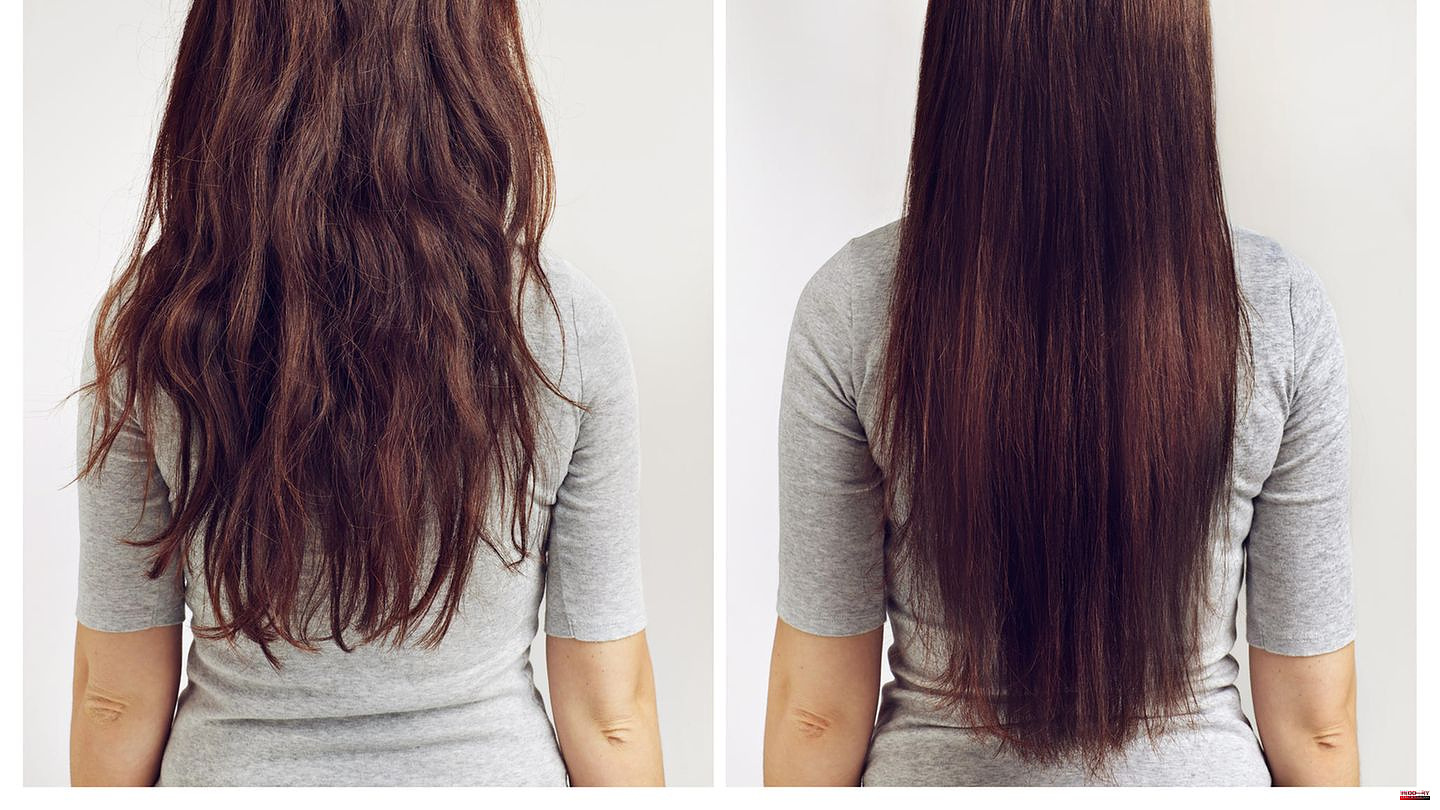Statistically, people with curly or wavy hair are more likely to have frizz. Translated, the term means "frizzy hair". However, that does not mean that your mane will never become independent if you have straight hair - quite the opposite: There are many external factors that can attack your hair structure and dry it out. As a result, hair not only looks brittle, but also loses its shine. And as if that weren't bad enough, they start to curl and/or stick out of the head. Now, at the latest, you should admit that you suffer from frizz. But there is also good news: With the right care products, you can tame your hair again.
Every hair consists of three layers: cuticle, cortex and medulla. The outermost layer (cuticula) is also called the dandruff layer and protects the healthy hair from external influences by its scales lying close together up to the tips and overlapping each other. However, when the hair is damaged or brittle, the cuticle becomes rough - as a result, the hair dries out and tries to compensate for moisture loss by absorbing moisture from the air. However, if this humidity gets below the cuticle, the hair begins to frizz. In other words: frizz is a consequence of dry or brittle hair. But what are the reasons behind this phenomenon?
The most common reasons for dry hair include heated air, sunbathing and regular hair coloring. But the frequent use of hair straighteners also attacks the cuticle. And even hats or turtleneck sweaters can promote frizz - this is due to the electrostatic charge. In addition, people with naturally curly or wavy hair are significantly more prone to frizz in high humidity than people with straight hair. It is all the more important to use the right care products that provide your hair with sufficient moisture. You can find out which products are particularly suitable for preventing frizz in the next paragraph.
To prevent your hair from drying out and frizzing in the first place, there are a few preventive measures you can take. One of them is brushing your hair regularly. It's best to use a wide-toothed comb or what's known as a tangle teezer: both are better than fine hairbrushes for distributing your hair's natural oils on your head. On the other hand, it is better if you do not wash your hair too often, but only every two to three days. You can also use silk pillowcases when you sleep or put a silk sheet over your pillow, as silk has an anti-static effect – and thus prevents frizz.
And last but not least, blow-drying also plays a decisive role: Normally it is always said that it is better to let your hair dry in the air. In fact, for people with frizzy or wavy hair, or those who also suffer from frizz, it's better to use a hair dryer. Due to the heat, the cuticle layers close faster and thus do not absorb moisture from the air and begin to fluff up. Here, however, you should use a nourishing heat protection spray that additionally seals the cuticle layer and thus protects your hair from drying out.
This article contains so-called affiliate links. There is more information here.












